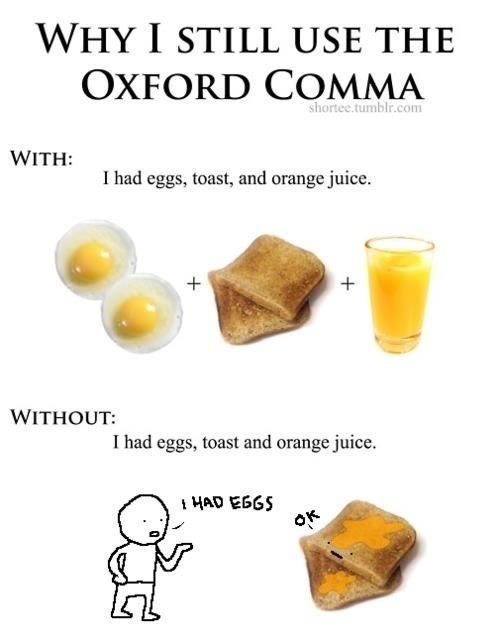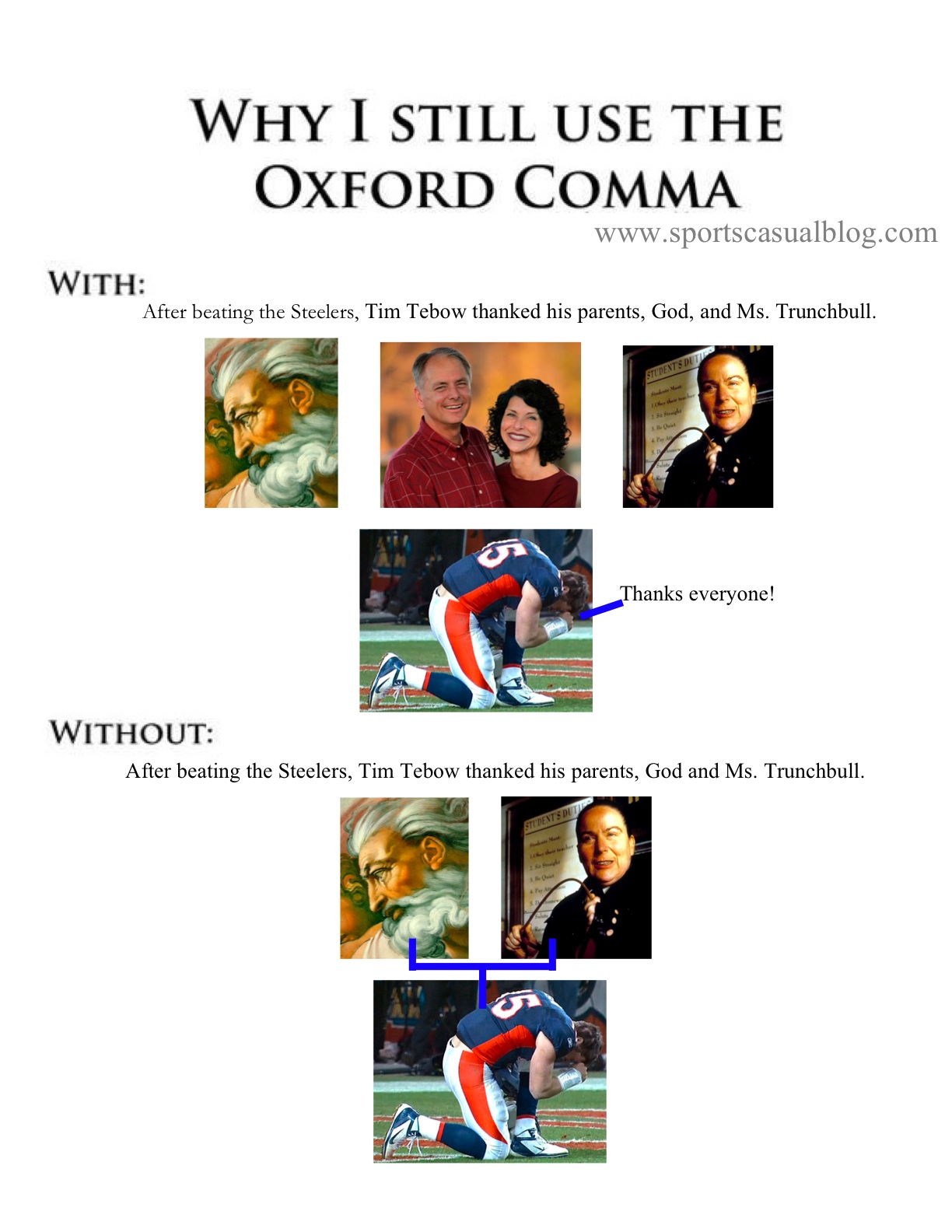Depending on where you grew up, you were likely taught in grade school that in a list of three or more items, a comma is placed before the coordinating conjunction (“and,” “or,” and sometimes “nor”) in the list. Some were taught that this is mandatory, while others were told it is an irrelevant rule, and these conflicting teaching methods have led to a confused nation.
That comma is called the Oxford comma, and while some call it a serial comma, others still prefer the hoity toity title of Harvard comma. How the Oxford comma works is as follows:
- With the Oxford comma: “I have lived in Nashville, Toronto, and Mexico City.”
- Without the Oxford comma: “I have lived in Nashville, Toronto and Mexico City.”
You may read those examples and think that there is literally no difference. The Oxford comma was originally eliminated by publishers where each manually loaded character was questioned as real estate on a page was at a premium. Publishers looked at sentences like the two above and agreed that there was no difference. Therefore, the AP Stylebook, which is still followed by traditional journalists today (but rejected by AGBeat).
The Oxford comma is common in many non-English languages of Latin descent, like Spanish, Italian, Greek, and French, to name a few. So why do some so vehemently disagree with this tiny comma’s use? Some say it introduces ambiguity, it is redundant in situations where coordinating conjunctions already point out the logical separation between items, and it adds unnecessary characters to text (important in the original publication days, and now relevant again with Twitter users).
No one here is an expert in grammar. Several of us have English and journalism degrees, and we write thousands of pages per month, but we make just as many mistakes as the next person. Collectively, we have a select few pet peeves, such as ignoring the poor Oxford comma.
Take a look at the pictures below and tell us in the comments whether or not you agree that the Oxford comma is vital to the language:





This editorial was first published here in 2012, and we stand by it today!
Lani is the COO and News Director at The American Genius, has co-authored a book, co-founded BASHH, Austin Digital Jobs, Remote Digital Jobs, and is a seasoned business writer and editorialist with a penchant for the irreverent.









































Jeff Brown
July 2, 2012 at 4:18 pm
Agreed. You are right. ‘Course, in my world, you’re always right, so what’s the big deal?
J Philip Faranda
July 2, 2012 at 10:15 pm
I must be getting old because I find this fascinating.
SeanPurcell
July 2, 2012 at 11:53 pm
I understand what you are suggesting, but the funny implication of the latter example in each case still looks like a list to me. If one wanted to say that their parents were Ayn Rand and God, wouldn’t they use a colon? E.g.: To my parents: Ayn Rand and God. Seems that in each example the “without Oxford comma” may not be as clean, but barring a colon still has the same meaning as the example with the Oxford comma. A defining or clarifying list should follow a comma shouldn’t it?
SeanPurcell
July 2, 2012 at 11:53 pm
understand what you are suggesting, but the funny implication of the latter example in each case still looks like a list to me. If one wanted to say that their parents were Ayn Rand and God, wouldn’t they use a colon? E.g.: To my parents: Ayn Rand and God. Seems that in each example the “without Oxford comma” may not be as clean, but barring a colon still has the same meaning as the example with the Oxford comma. A defining or clarifying list should follow a colon shouldn’t it?
Kappymann
July 3, 2012 at 12:54 am
No, you are not correct as illustrated in the last two examples. If you were to use a colon after the words parents and rinoceri, that would have been the correct punctuation for that meaning. M
jsheehan
July 3, 2012 at 7:07 am
I think this is the most abused punctuation mark in the language. I am a comma abuser myself. Reminds me of a story (and the title of a book about English grammar):
A Panda walks into a cafe and orders a sandwich. After eating the sandwich, he pulls out a gun and starts shooting all the other customers. As he heads for the door to leave the cafe owner asks, “Why did you shoot all these innocent people”. The Panda replies, “I am a Panda. A Panda eats, shoots, and leaves”. 🙂
Pingback: Grammarians delight with new document checking tool - AGBeat